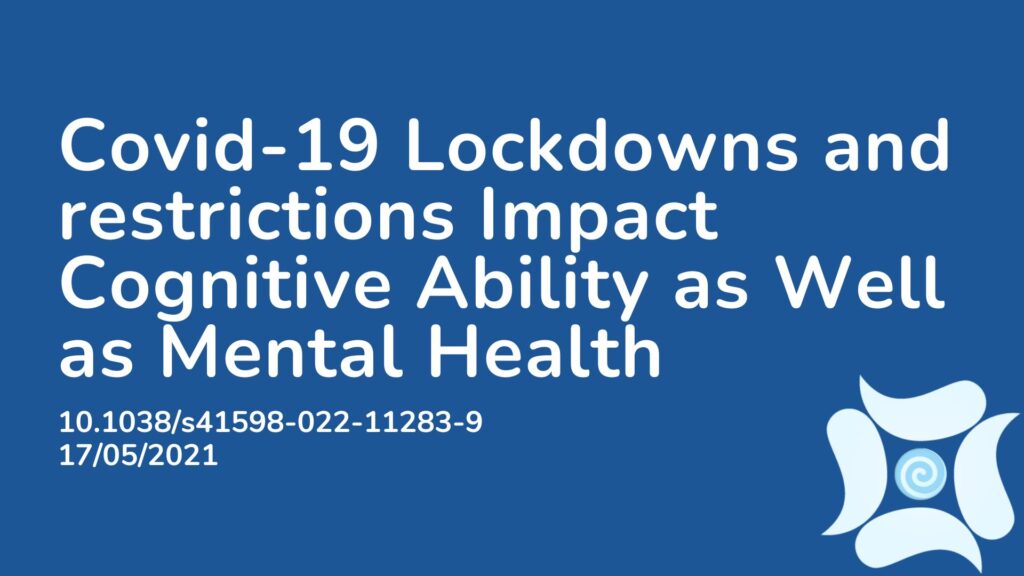Summary: The restrictions and lockdowns, introduced in 2020 to slow the transmission of the Covid-19 virus and the infection rates has impacted global trends including reduced physical activity, changed sleeping patterns, increased alcohol and drug consumption, increased depressive symptoms, financial stress and much more. In addition to the well-reported impact on mental health, lockdowns and restrictions have also impacted cognitive health. However, research in this area is still scarce. It is thought that people of all ages are affected due to missing out on cognitive stimulation, social communication, reduced access to educational systems or environments conducive to learning from others. The goal of this present study was to assess the impact of the restrictions on someone’s depressiveness and loneliness during the Covid-19 lockdowns in Germany and then see how these factors impact someone’s cognitive ability. A longitudinal study with three assessments issued separately and online was conducted between April and December 2020. The online assessments involved questionnaires as well as cognitive tasks. The results suggested that depressiveness was associated with reduced cognitive performance. These results were more pronounced the younger the participant. Loneliness and depressiveness together contributed to an even worse evaluation of cognition. Given these results, future research should include cognitive ability when analysing the residual impacts of lockdowns and restrictions, not just common mental health illnesses such as depression or anxiety.
Abstract:
Restrictive means to reduce the spread of the COVID-19 pandemic have not only imposed broad challenges on mental health but might also affect cognitive health. Here we asked how restriction-related changes influence cognitive performance and how age, perceived loneliness, depressiveness and affectedness by restrictions contribute to these effects. 51 Germans completed three assessments of an online based study during the first lockdown in Germany (April 2020), a month later, and during the beginning of the second lockdown (November 2020). Participants completed nine online cognitive tasks of the MyBrainTraining and online questionnaires about their perceived strain and impact on lifestyle factors by the situation (affectedness), perceived loneliness, depressiveness as well as subjective cognitive performance. The results suggested a possible negative impact of depressiveness and affectedness on objective cognitive performance within the course of the lockdown. The younger the participants, the more pronounced these effects were. Loneliness and depressiveness moreover contributed to a worse evaluation of subjective cognition. In addition, especially younger individuals reported increased distress. As important educational and social input has partly been scarce during this pandemic and mental health problems have increased, future research should also assess cognitive long-term consequences.
Article Publication Date: 17/05/2021
DOI: 10.1038/s41598-022-11283-9



